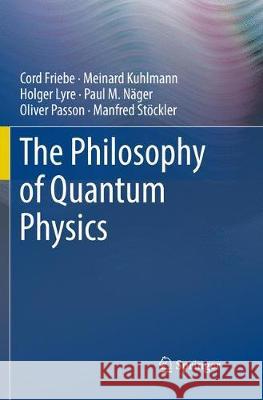The Philosophy of Quantum Physics » książka
topmenu
The Philosophy of Quantum Physics
ISBN-13: 9783030086855 / Angielski / Miękka / 2019 / 291 str.
The Philosophy of Quantum Physics
ISBN-13: 9783030086855 / Angielski / Miękka / 2019 / 291 str.
cena promocyjna 134,75
(netto: 128,33 VAT: 5%)
269,49
Rabat: -50%
Najniższa cena z 30 dni: 212,02
(netto: 128,33 VAT: 5%)
Rabat: -50%
Najniższa cena z 30 dni: 212,02
Termin realizacji zamówienia:
22 dni roboczych
22 dni roboczych
Darmowa dostawa!
Zobacz inne książki w promocji: Wyprzedaż publikacji z zakresu nauk stosowanych
Kategorie BISAC:
Wydawca:
Springer
Język:
Angielski
ISBN-13:
9783030086855
Rok wydania:
2019
Dostępne języki:
Ilość stron:
291
Oprawa:
Miękka











